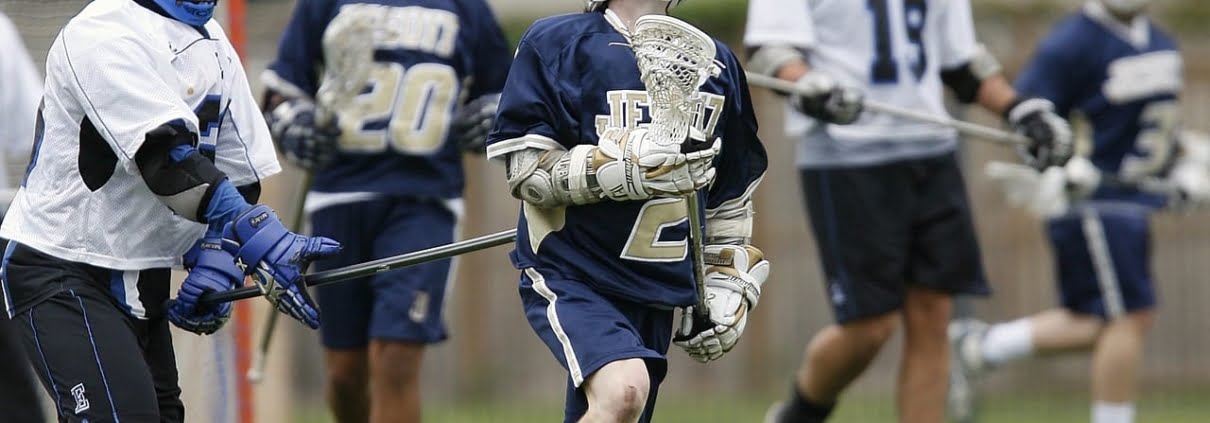Guest Post: Reconstructing a Player’s Confidence
Youth sports is about making mistakes and learning from them. Challenges and setbacks in practice and games are part of the growth process. Here are some great tools to help build your players' mental conditioning, which often gets overlooked while we focus on phsycial conditioning.
Guest Post: Anthony Lanzillo is a mental health professional with over 20 years experience. Lanzillo began writing about the mental game of sports in 2014 for such websites as FirstDown Playbook, Coaches Training Room, Lacrosse All-Stars, and Coaches Clipboard. He now reaches out and works with athletes as a mental skills coach. In 2012, Lanzillo served as the coordinator for the KBD LAX training program, and in 2013, he was a co-founder of the Haddon Township Lacrosse Club in Southern New Jersey which now sponsors a youth program, and boys' and girls' lacrosse at the high school level.
- Related: You can ready more about Anthony's work at www.thementalpeak.com
Reconstructing A Player’s Confidence
 Given all the different responsibilities that come with being a lacrosse coach, one of the most difficult challenges facing any coach could be identifying and helping a player who is losing or has lost his confidence. Realizing that most players aren’t going to simply walk up and tell the coaching staff, coaches need to pay attention to the various signs of a player struggling with his self-confidence as well as figuring out to help this player regain his confidence.
Given all the different responsibilities that come with being a lacrosse coach, one of the most difficult challenges facing any coach could be identifying and helping a player who is losing or has lost his confidence. Realizing that most players aren’t going to simply walk up and tell the coaching staff, coaches need to pay attention to the various signs of a player struggling with his self-confidence as well as figuring out to help this player regain his confidence.
Like reconstructing a building that has been damaged, and needs new bricks to stabilize and strengthen that structure, rebuilding a player’s confidence takes different tools to develop his self-confidence and strengthen his self-esteem.
Whether it’s at practice, a physical conditioning session, team meeting or a game, you want to be looking for any visible signs that one of your players may be losing his confidence. In practice, you see a player make a mistake, hit the ground with his stick, yell in frustration, and then make the same mistake within minutes of the first one. At a physical conditioning session, there is a player who complains about feeling bad and is asking to leave early. During a team meeting, you overhear a player in the back of the room tell one of his teammates that he will never be as good as the other players on the team. And in a game, there is a player on the field who appears to be holding back, afraid of looking bad, and therefore, is not being proactive in stressful game-time situations.
There are various reasons for any player to lose his confidence. It can be triggered when the player begins to compare himself on a regular basis to players who he  perceives are better than him. Also, it can start with the player who makes one or more mistakes in a practice and game, begins to visually replay in his mind all the mistakes that he’s made in the past, and tells himself that he is a failure on the field.
perceives are better than him. Also, it can start with the player who makes one or more mistakes in a practice and game, begins to visually replay in his mind all the mistakes that he’s made in the past, and tells himself that he is a failure on the field.
Other reasons could be a player who thinks he is not getting enough playing time because he is not a good player, the player who thinks and worries about things that he can’t control, the player who gets upset with himself when he scores one goal in a game when he usually gets three, a player who feels like he is not having any more fun in the game, and the player who spends more time thinking about his weaknesses instead of his strengths as an athlete.
Whatever the player is thinking about or is experiencing on the field, a coach can play a pivotal role in helping this player regain his confidence. There is a process you can take a player through to help him elevate his self-confidence and self-esteem.
1.) The first step is to talk to your player about only focusing on what he controls, and to “mentally” let go of all those things that he can’t control. At the same time, you want to remind this player to take measure of his own progress and goals, and not to become occupied with measuring himself against other players.
2.) The second step is to get the player to focus on the process of becoming a better player, and not to worry about the results. One approach is to ask this player to set some simple and short-term goals for his practices, and then identify the specific steps that he needs to take to reach these goals. So, if the player is a middie and wants to strengthen his groundball skills, then he will want to determine what he needs to work on during practice to develop these skills. Or, if the player is an attackman and is often struggling to shoot on goal when two or three defensive players are covering him, then he will want to explore what other options he has in those situations to become a more effective player – which may simply be learning how to find and pass the ball to the open players on his team.
3.) The next step is to encourage your player to produce a highlights film of positive experiences from the past and play this film in his mind on a regular basis rather than replaying the negative experiences. Other steps include having the player stop making global negative judgments about himself that don’t provide a realistic picture of his abilities, stay focused on his strengths as he is working on his weaknesses, and identify the many different roles that he can play on the team to support his teammates and coaches. You want your player to understand that his confidence is built upon how he thinks and what he believes about himself. And you want to give this player daily tasks that he can undertake to become a mentally stronger and strengthen his self-esteem.
Ultimately, this process will give the player a greater sense of enjoyment and empowerment when he steps on the field.


